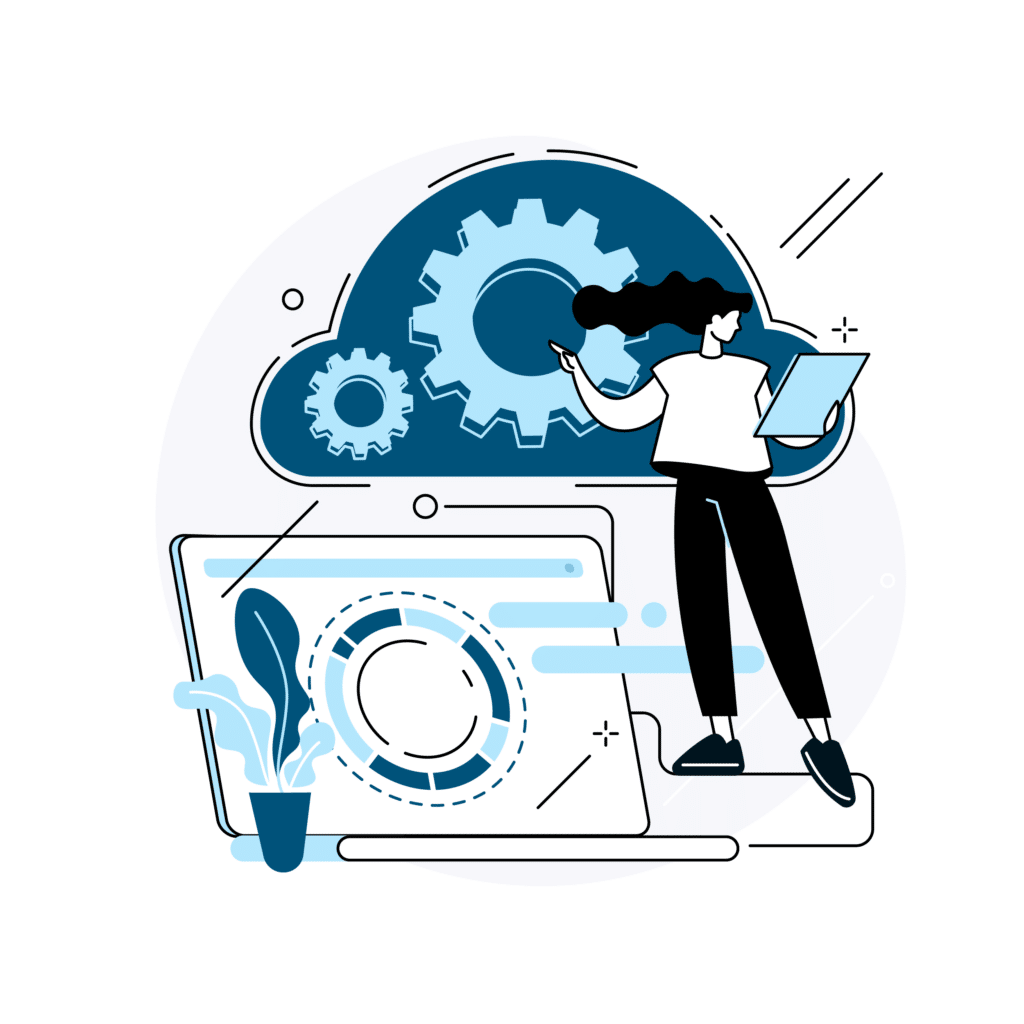Every year, the world-renowned technological research and consulting firm Gartner releases its top strategic technology trends. These trends are likely to shape and transform the technological and IT landscape in the upcoming months and years.
This article will take a quick look at the 10 most pressing technology trends for 2023 according to Gartner – trends that can represent a challenge or an opportunity for your organization. The article will also provide a more in-depth analysis of trend number five on Gartner’s list: platform engineering. What is it about and why is platform engineering worth your attention?
What are Gartner’s top technology trends for 2023?
Let us first take a glance at the most important strategic technology trends for 2023 that Gartner identifies.
- Digital immune system means creating an enhanced customer experience by combining multiple software engineering strategies to protect your organization against risks. Observability, automation, and extreme design and testing create resilient systems that mitigate operational and security risks.
- Applied observability uses an organization’s data and sophisticated AI technology to make recommendations that allow you to make more accurate predictions and future decisions.
- AI Trust, Risk and Security Management (AI TRiSM) supports AI model governance, reliability, robustness, efficiency, and data protection. It allows you to explain AI results, actively manage AI security, and implement controls for privacy and ethics issues.
- Industry cloud platforms combine SaaS, PaaS and IaaS with tailored and industry-specific functionalities.
- Platform engineering provides a curated set of tools, capabilities and processes that are designed and packaged for easy consumption by developers and end users.
- Wireless value realization expands the usability, range and practical implementation of wireless solutions, offering support for edge devices, digital tagging, and real-time information solutions.
- Superapps combine the features of traditional apps, platforms and ecosystems in one single application.
- Adaptive AI uses real-time feedback to continuously improve and retain models, allowing them to adapt quickly to changing real-time circumstances.
- Metaverse allows you to replicate or enhance many physical activities. Metaverse technology gives you the opportunity to transport or extend them to a virtual world by transforming the physical one.
- Sustainable technology is a hot topic in 2023. Organizations will continue searching for new and better ways to increase efficiency and reduce the energy needs of IT technology.

Platform engineering: what is it all about?
After this general overview of Gartner’s top technology trends for 2023, let us now focus on platform engineering. Platforms are rapidly becoming an ever more important part of modern IT ecosystems. They provide a curated set of tools, capabilities, and processes selected by subject matter experts and packaged for easy consumption by end users. The goal? Delivering a frictionless self-service experience that offers the right capabilities to enable users to do valuable work with as little overhead as possible. This allows end users to increase their productivity but also reduces their cognitive burden.
Platform engineering entails the modification of platforms to the specific wishes and business needs of its end users. Dedicated product teams create and maintain the platform and provide software developers and users with reusable tools, the right capabilities, and user-friendly interfacing solutions. The goal? A seamless and frictionless self-service experience that offers the right capabilities to enable developers and others to produce valuable software with a minimal amount of overhead.
Why is platform engineering worth the attention?
There are several reasons why platform engineering is worth your attention. The most important are:
- Platform engineering enhances developer productivity by providing self-service capabilities with automated infrastructure operations.
- No two organizations are the same. This means that the specific capabilities that a platform must have, entirely depend on the needs of its end users. Platform engineering allows you to deliver a high degree of personalization when it comes to building, implementing, and maintaining platforms.
- Platform engineering utilizes reusable configurable application components and services. This simplifies the development process and decreases overhead.
- Users can utilize standardized tools, components, and automated processes.
Be Informed and the key to future platform engineering
The Be Informed platform is a prime example of platform engineering in action. The use of declarative models and advanced goal-oriented, backward-chaining inferences to automate decisions, supports decision-makers and generates contextual processes according to the rules specific to a particular situation. This results in a context-aware process handling platform that provides a personal and customer-centric experience fueled by real-time information.
The model-driven character of the Be Informed platform makes developing a lot faster (three to ten times) and less labor-intensive than traditional approaches. Solid, open integration solutions make the platform highly scalable, integrable, future-proof, and capable of handling all levels of complexity. Continuous development is also one of the principles that Be Informed adheres to. This means that we are constantly busy improving and optimizing the platform for an even better user experience.
Would you like to reap the benefits of platform engineering? Are you interested in exploring the features, opportunities, and benefits of the Be Informed platform?
Then don’t hesitate to contact us.









